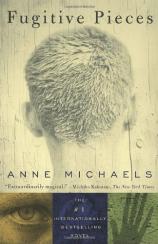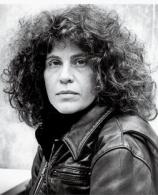Reading Group Guide
Discussion Questions
Fugitive Pieces

1. Why is the first section of the novel entitled "The Drowned City?" Why is the title repeated for a later section?
2. Jakob says that Athos's fascination with Antarctica "was to become our azimuth. It was to direct the course of our lives" [33]. Why do you think Antarctica obsessed Athos? How does the story of the Scott expedition relate to that of Athos and Jakob? Do you agree with Jakob that Athos's fascination directed their lives?
3. "When the prisoners were forced to dig up the mass graves, the dead entered them through their pores and were carried through their bloodstreams to their brains and hearts. And through their blood into another generation" [52], Jakob writes, and later, "It's no metaphor to feel the influence of the dead in the world" [53]. How does the theme of the dead's influence on the living work itself out in the course of the novel?
4. The communist partisans in Greece, who had valiantly resisted the occupying Nazis, themselves committed terrible atrocities after the war, as Kostas and Daphne relate. Do you agree with their theory that violence is like an illness that can be caught, and that the Greeks caught it from the Germans [72]? What other explanations can be offered?
5. "I already knew the power of language to destroy, to omit, to obliterate," says Jakob. "But poetry, the power of language to restore: this was what both Athos and Kostas were trying to teach me" [79]. What instances does the novel give of the destructive power of language? In what ways does writing--both the writing of poetry and of translations--help to heal and restore Jakob? Does silence--the cessation of language--have its own function, and if so, what might it be?
6. "We were a vine and a fence. But who was the vine? We would both have answered differently" [108]. Here Jakob is speaking of his relationship with Athos; of what other relationships in the novel might this metaphor be used? Does Michaels imply that dependence is an integral part of love?
7. What is it about Alex's character that attracts Jakob and makes him fall in love with her? Why does he eventually find life with her impossible? Do you find Alex a sympathetic character, or an unpleasant one?
8. "History is amoral: events occurred. But memory is moral" [138]. "Every moment is two moments" [161]. How does Jakob define and differentiate history and memory? Can you see Fugitive Pieces as a comparison of history and memory?
9. Music is an important element of Fugitive Pieces, and it is central to the lives of at least three of the characters, Bella, Alex, and Naomi. What does music mean to each of these characters? Why has Michaels given music such a prominent metaphoric role in the novel?
10. What does Fugitive Pieces say about the condition of being an immigrant? Jakob never feels truly at home anywhere, even in Greece. Ben's parents feel that their toehold in their new home is infinitely precarious, an emotion that communicates itself to Ben. Does Michaels imply that real integration is impossible?
11. Can you explain the very different reactions Ben's parents have had to their experience in the Holocaust? What in their characters has determined the differing ways they respond to grief and loss?
12. The relationship between Ben and Naomi is a troubled one. Why is he angry at her for her closeness to his parents and her attention to their graves? Why does he reject her by leaving for Greece without her? How can you explain his intense desire for Petra--is his need purely physical? How do Petra and Naomi differ? What is the significance of their names?
13. Science has as important a role in the novel as poetry and music. Why is geology so important to Athos, meteorology to Ben? Does science represent a standard of disinterested truth, or does it merely symbolize the world's terrifying contingency?
14. Why might Jakob have named his collection of poems Groundwork, and in what way does that title relate to his life? Jakob calls his young self a "bog-boy" [5]. Why does Ben take such an interest in the preserved bog people he reads about [221]?
15. The last line of the novel is Ben's: "I see that I must give what I most need." What does he mean by this? What does he most need, what will he give, and to whom?
16. What is the significance of the novel's title? What do "pieces," or "fragments," mean within Michaels's scheme? Where in the novel can you find references to fragments?
Fugitive Pieces
- Publication Date: May 26, 1998
- Paperback: 294 pages
- Publisher: Vintage
- ISBN-10: 0679776591
- ISBN-13: 9780679776598








